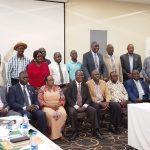Kampala traders are preparing to close their shops due to a disagreement with Uganda Revenue Authority (URA) over a new tax system called Electronic Fiscal Receipting and Invoicing Solution (EFRIS). This disagreement has escalated to the point where merchants have declared a strike scheduled to begin on April 8, 2024.
According to URA, the planned demonstration is unjustified as they have engaged with traders and provided explanations regarding EFRIS. However, they allege that traders are resisting transparency and tax compliance.
The Federation of Uganda Traders Association (FUTA), which has absorbed the Kampala Capital City Traders Association (KACITA), has raised objections to the implementation of EFRIS. Their concerns include unfair competition from foreign investors, double taxation, aggressive tax enforcement, and the exclusion of businesses in outlying areas from the automated tax system.
EFRIS involves using Electronic Fiscal Devices (EFDs), e-invoicing, and direct communication with business transaction systems to manage electronic receipts and invoices in accordance with the Tax Procedures Code Act 2014. This system, which has been used in various countries for years, was adopted by Uganda in 2019 but faced delays due to the COVID-19 pandemic.
Initially, EFRIS was rolled out to factories and supermarkets with existing sales systems that could easily interface with URA’s system. However, other business sectors raised concerns about the new tax administration system, leading URA to develop a web-based version of EFRIS to accommodate businesses without sales systems.
Despite URA’s efforts to facilitate compliance, traders in central Kampala, particularly those in the Kikuubo trading hub, expressed difficulties understanding the new system. In response, URA introduced a Desktop App to assist traders in enrolling and inputting transaction details. However, traders found this system cumbersome.
Following further complaints, URA developed the Electronic Fiscal Device (EFD), but traders objected to the associated cost. Subsequently, a mobile version of EFRIS was introduced, but it faced resistance during its pilot phase in November 2023.
Traders in Kikuubo voiced grievances about high taxes, aggressive enforcement tactics by URA, and what they perceived as unfair competition from foreign retailers. Despite engagements between URA officials and traders, tensions remained high, culminating in the planned strike.
URA maintains that its actions are lawful and urges traders to comply with tax regulations. The standoff between URA and Kampala traders underscores broader issues surrounding taxation, compliance, and the challenges faced by small businesses in adapting to new tax systems.
Efforts to resolve the dispute involve engagements between government officials and traders, including promises to address concerns raised by the traders. However, the resolution of these issues remains uncertain as both parties stand firm in their positions.




















